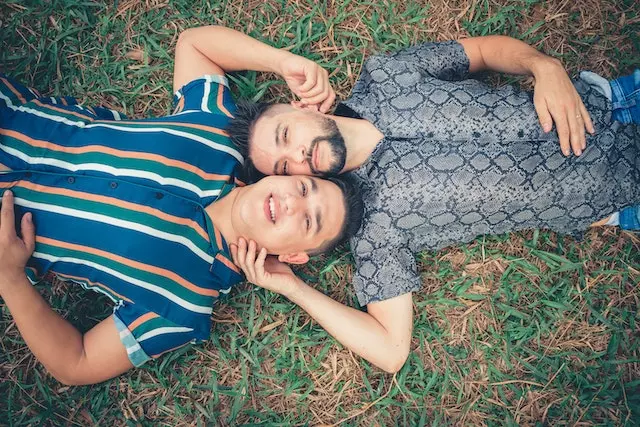The afflictions of mental health are ubiquitous, affecting multitudes globally, and the LGBTQ+ community is not immune to its debilitating effects. In actuality, research exhibits that individuals who identify as LGBTQ+ are more likely to suffer from mental health disorders than their heterosexual counterparts. To address the maladies prevalent in the LGBTQ+ community, a viable solution that has been proven efficacious is the employment of Cognitive Behavioral Therapy (CBT) Gay Therapy. Thus, in the following discourse, we shall elucidate the intricacies of CBT Gay Therapy, its modus operandi, and the perks it confers in treating mental health issues in the LGBTQ+ community.
CBT Gay Therapy is a modality of Cognitive Behavioral Therapy that has been meticulously customized to cater to the idiosyncratic requirements and circumstances of LGBTQ+ individuals. The primary objective of CBT Gay Therapy is to assist clients in recognizing and confronting detrimental cognitive frameworks that fuel mental health disorders. In addition, it guides clients in formulating coping mechanisms to navigate their symptoms adeptly and enhance their holistic welfare.
CBT Gay Therapy follows a structured and purpose-driven format. Usually, it entails recurring weekly consultations between the therapist and the client. During these sessions, the client and the therapist collaborate to pinpoint explicit goals and devise a strategy to attain them. CBT Gay Therapy comprises various fundamental elements, including:
CBT Gay Therapy empowers clients to discern detrimental thought patterns that perpetuate their mental health problems. These thoughts may be counterproductive, unfeasible, or unconstructive, which typically lead to negative emotions and conduct. Through the identification of such thought patterns, clients acquire the skills to confront them and foster more constructive and pragmatic thinking.
CBT Gay Therapy also facilitates the acquisition of effective coping mechanisms to navigate symptoms and augment overall well-being. These coping strategies may incorporate practices such as relaxation techniques, mindfulness exercises, or behavioral interventions.
Exposure therapy is a prevalent feature of CBT Gay Therapy, primarily utilized for clients grappling with anxiety or phobias. Exposure therapy necessitates a gradual and secure exposure of the client to the source of anxiety or fear, allowing them to acclimate to the situation or object. By doing so, clients become less sensitive to the object or situation, and more adept at managing their anxiety.
CBT Gay Therapy is a versatile treatment modality that can benefit individuals grappling with various mental health disorders, including:
CBT Gay Therapy teaches individuals how to challenge negative thought patterns and acquire coping mechanisms to manage their symptoms of depression and anxiety.
CBT Gay Therapy can effectively treat substance use disorders by helping clients confront and modify the thoughts and behaviors that contribute to their substance use.
CBT Gay Therapy provides individuals with PTSD the tools to manage their symptoms through coping strategies and addressing negative thought patterns associated with the disorder.
CBT Gay Therapy can be highly advantageous for individuals struggling with sexual or gender identity. By developing coping strategies to navigate stress and anxiety related to these issues and addressing negative thought patterns related to their identity, clients can achieve improved well-being.
Individuals within the LGBTQ+ community may experience unique and daunting mental health challenges, but CBT Gay Therapy provides a tailored and efficacious approach to tackle these issues. By recognizing negative thought patterns and formulating coping mechanisms, clients can effectively manage their symptoms and enhance their holistic welfare. CBT Gay Therapy has been proven to be a potent tool in addressing various mental health issues, such as depression, anxiety, substance use disorders, PTSD, and sexual and gender identity concerns.

CBT Gay Therapy is specifically tailored to address the unique needs and experiences of LGBTQ+ individuals, but it can also be effective for individuals who do not identify as LGBTQ+. However, individuals who identify as LGBTQ+ may benefit from working with a therapist who is knowledgeable about the specific challenges and issues faced by this population.
The length of CBT Gay Therapy varies depending on the individual's specific needs and goals. Typically, therapy lasts between 12-20 sessions, although some individuals may require more or fewer sessions depending on their circumstances.
It is important to find a therapist who is knowledgeable and experienced in working with LGBTQ+ individuals. One way to find a therapist is to search for mental health professionals who specialize in LGBTQ+ issues on online directories or through professional organizations such as the Association for Behavioral and Cognitive Therapies (ABCT) or the Gay and Lesbian Medical Association (GLMA).
During your first session of CBT Gay Therapy, your therapist will typically conduct an assessment to get a better understanding of your specific needs and goals. You can expect to discuss your current symptoms and any past experiences that may be relevant to your mental health concerns. Your therapist may also discuss the structure and goals of therapy and answer any questions you may have.
Research has shown that CBT Gay Therapy can be effective in treating a range of mental health issues in the LGBTQ+ community. However, it is important to note that therapy is a highly individualized process, and outcomes can vary depending on the specific needs and circumstances of each individual.